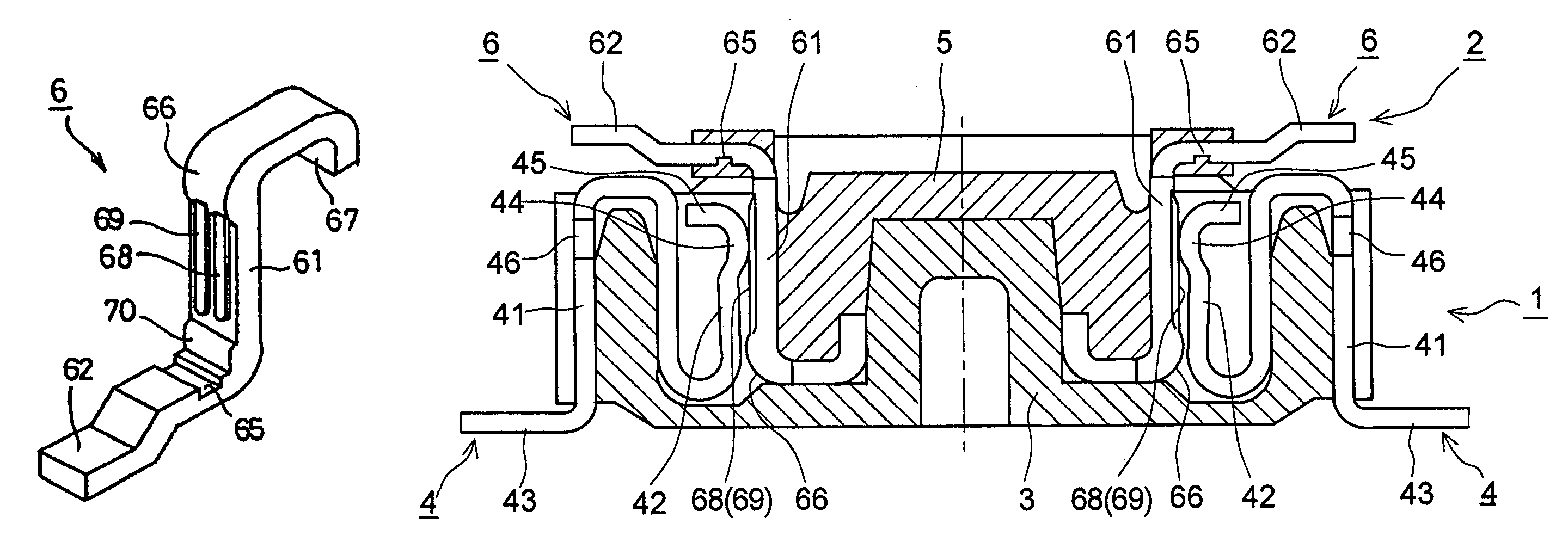Connector, and portable terminal equipment including the connector
a technology of connectors and portable terminals, applied in the direction of coupling contact members, coupling device connections, electric discharge lamps, etc., can solve the problems of inefficiency of removal of foreign matter, bad connection between the receptacle and the plug, and the impact of each receptacle contact and the associated plug contact, etc., to achieve stable contact resistance
- Summary
- Abstract
- Description
- Claims
- Application Information
AI Technical Summary
Benefits of technology
Problems solved by technology
Method used
Image
Examples
Embodiment Construction
[0028]An embodiment of a connector according to the present invention is provided with a receptacle 1 shown in FIG. 1 and an associated plug 2 shown in FIG. 4 which are engaged with each other to be electrically connected to each other. For instance, one of the receptacle 1 and the plug 2 is mounted to an LCD (liquid display device / display device) unit or a CCD (charge coupled device / image pickup device) unit, while the other of the receptacle 1 and the plug 2 is mounted to a board (e.g., circuit board) which is electrically connected to the LCD unit or the CCD unit to control operations thereof. The LCD unit or the CCD unit is electrically connected to the board by the engagement of the plug 2 with the receptacle 1. The receptacle 1 and the plug 2 can be adopted for establishing electrical connection within portable terminal equipment (e.g., a cellular phone, a PDA (personal digital assistant) such as a mobile computer and the like) or electrical connection between portable termina...
PUM
 Login to View More
Login to View More Abstract
Description
Claims
Application Information
 Login to View More
Login to View More - R&D
- Intellectual Property
- Life Sciences
- Materials
- Tech Scout
- Unparalleled Data Quality
- Higher Quality Content
- 60% Fewer Hallucinations
Browse by: Latest US Patents, China's latest patents, Technical Efficacy Thesaurus, Application Domain, Technology Topic, Popular Technical Reports.
© 2025 PatSnap. All rights reserved.Legal|Privacy policy|Modern Slavery Act Transparency Statement|Sitemap|About US| Contact US: help@patsnap.com



